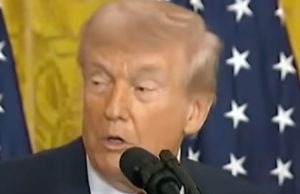
If you’ve ever seen flying ants in your home, you’ve probably wondered why they suddenly appear in large numbers. Although many people associate this phenomenon with a simple nuisance, flying ants actually have a very specific purpose. They don’t appear by chance; in this article, we’ll explore their significance, why they arrive in your home, and what you should do when you find them.
What Are Flying Ants and Why Do They Appear?
Flying ants are a natural phase in the life cycle of many ant species. Scientifically, these insects are known as “alates” and are found in the reproductive stage of ant colonies. It’s important to understand that flying ants are not a separate species, but rather a temporary form of ant that, due to their ability to fly, play an essential role in the reproduction and expansion of the colony.
1. Reproduction and Colony Expansion
The emergence of flying ants generally occurs during an event called the “nuptial flight.” During this phenomenon, both male and female ants leave their colonies to meet others in the air, allowing them to reproduce. This is an essential life cycle for ensuring the survival of the species and usually occurs at certain times of the year, especially in spring and summer, when conditions are ideal for flight and reproduction.
2. Optimal Weather Conditions
Warmth and humidity are important factors influencing the emergence of flying ants. During hot days and after rain, conditions become perfect for winged ants to emerge from their colonies. This can be a sign that the weather is changing or reaching an optimal phase for the ants’ reproductive cycle.
3. Purpose of Flying Ants
The purpose of flying ants is to reproduce and form new colonies. After mating, fertilized females search for a suitable location to establish new colonies. This is a fundamental process for the expansion of the species, which can cause you to see large groups of flying ants in or around your home at certain times.
What Does the Presence of Flying Ants in Your Home Mean?

Although flying ants are not a direct threat to humans, their appearance in your home can be a sign of several factors:
1. An Environment Conducive to Colonization
The presence of flying ants in your home can be an indication that there is a colony nearby, and that the conditions inside your home are attractive to them. Ants look for places with access to food, water, and shelter, so it is important to verify that your home does not provide an environment conducive to their establishment.
2. Change in the Life Cycle of Nearby Colonies
If flying ants are arriving at your home, it may be because an established colony somewhere nearby has reached its reproductive phase. This could be a sign that the ant colonies in the area are expanding and reproducing, which not only affects your home but also the surrounding area.
3. A Sign of an Impending Infestation
If flying ants are appearing in large numbers, it could be a sign that you will soon see an increase in ant activity in your home. Although not all ant species are destructive, some can invade your pantry and structures, causing inconvenience and damage. Being aware of this phenomenon will allow you to take preventative measures.
What to Do If You Find Flying Ants in Your Home?
If you find flying ants in your home, don’t be alarmed, but it is important to take some precautions:
Investigate the Source: Look for possible nests or entry points near your home. If the flying ants are entering through a crack or opening, seal those access points.
Clean Affected Areas: Ants can be attracted to food and debris. Keep your home clean and store food in airtight containers to prevent ants from being attracted to your home.
Use Repellents: There are several natural methods and commercial products to repel ants. From white vinegar to boric acid, these methods can be effective in keeping ants away.
Consult a Professional: If the problem persists or if you find an ant infestation in your home, consider contacting a professional exterminator to eliminate the colony and prevent future invasions.















